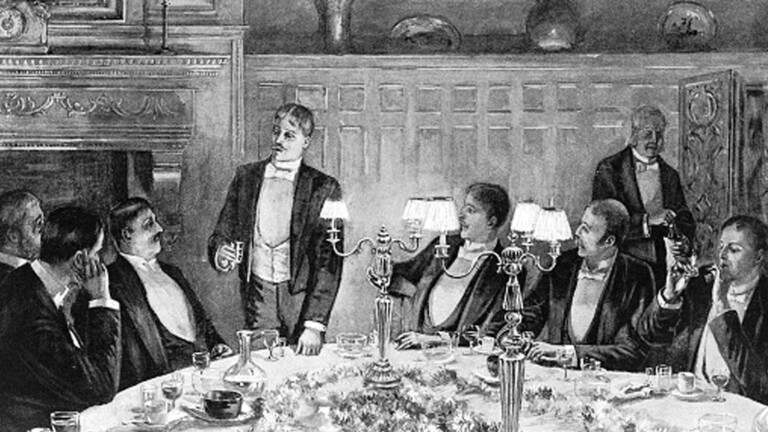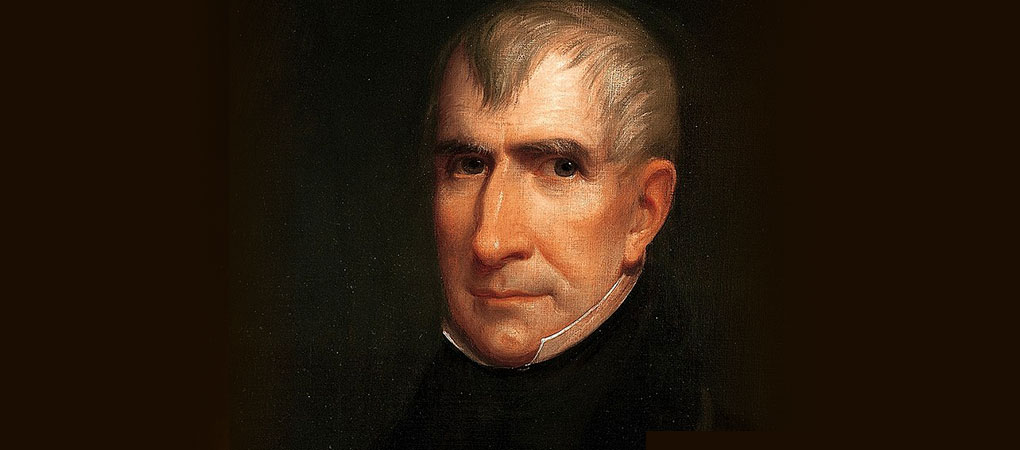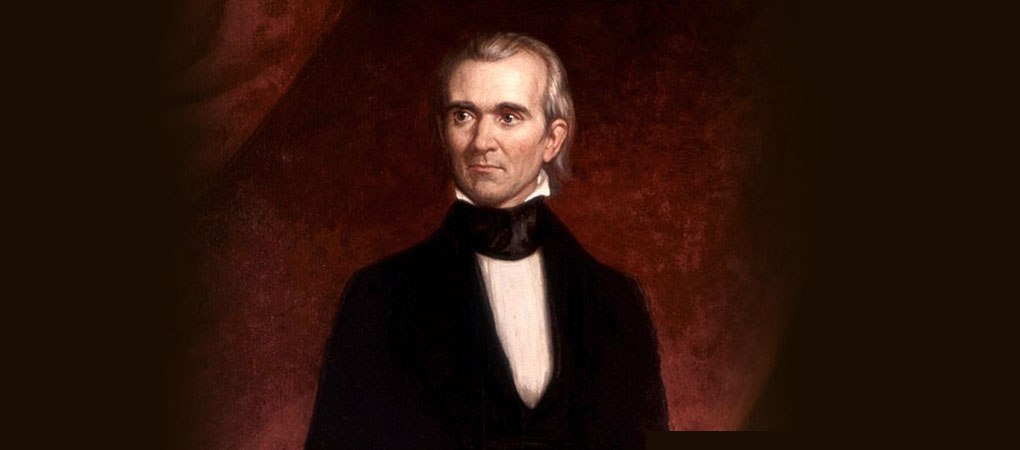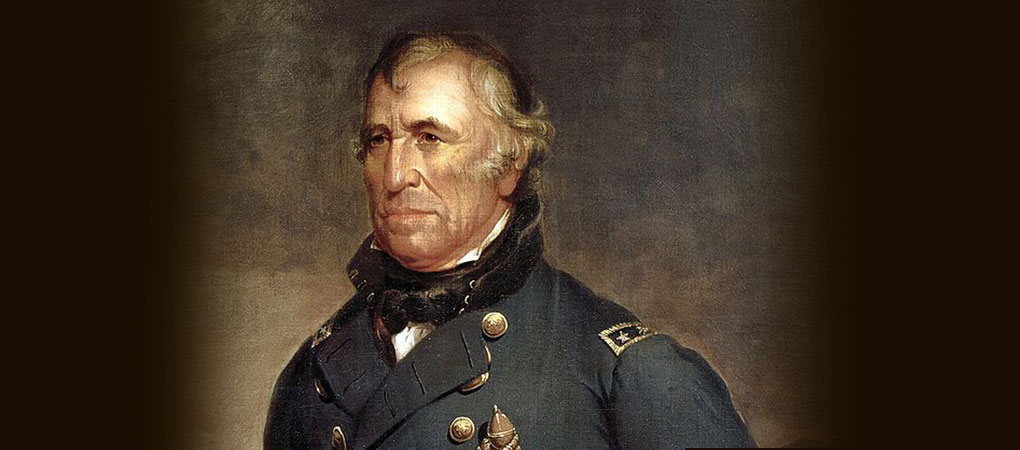
Presidential Drinking
Part 3: Harrison to Taylor
The story of Prohibition is very much the story of America’s relationship with alcohol throughout our history. It has shaped our politics, our culture, and our economy. Changing American tastes and values had enormous influence over just how present alcohol, and what types of it, has been in our society. A fascinating gauge of those changing tastes is looking at how our presidents from the Founding Fathers all the way up to the incumbent have interacted, or not interacted, with beer, wine and spirits.
In this series, Presidential Drinking, we’ve dug deep into what place alcohol had in each president’s life from their favorite drinks to whether it contributed to their business practices throughout their lives to whether they… well… imbibed a little too much from time to time.

President William Henry Harrison, served 1841 – 1841
What was his drink of choice?
Somebody write John Adams a long-winded and wordy letter! We’ve got another hard cider drinker in the house. Maybe leave out the next part though. John Adams, if you remember, considered cider to be a cure-all, the key to perfect health! Unfortunately, we all know William Henry Harrison (unfairly) for just one thing: being not only the first president to die in office, but the one with the shortest tenure of just over 30 days. While many repeat the story that President Harrison developed pneumonia after not wearing a coat to his tortuously long inauguration speech, historians have now posited that Harrison died from typhoid fever contracted from the terrible water supply in the area. If that’s the case, Adams may have been onto something! Harrison should’ve been drinking cider instead of water!
Was he in the booze business?
No. Although, if life had gone a bit differently, he may have been! William Henry Harrison came from a long line of doctors and studied to become one himself under the tutelage of Declaration of Independence signer Benjamin Rush. Rush published one of the earliest documents in America warning of the dangers of alcohol. However, being a doctor at the time was a lot like being in the booze business given how much of it was used as medicine. When his family fell on hard times, Harrison abandoned his studies for a career in the military and later became known as the war hero of the Battle of Tippecanoe.
Did he party?
Not all that much, unless you ask his 1840 opponent, President Martin Van Buren. Going into the election, William Henry Harrison of the Whig party had quite the credentials being a war hero and all. He was loved by the people as a rugged soldier and campaigned on the slogan “Tippecanoe and Tyler, too!” The campaign was notably dirty between Van Buren and Harrison. Seeking to overcome Harrison’s golden reputation, the Democrats spread word of his reliance on hard cider. They printed the smear: “Give him a barrel of hard cider and … a pension of two thousand a year … and … he will sit the remainder of his days in his log cabin.”
The Whigs seized on the opportunity and declared Harrison the “log cabin and hard cider candidate.” The mid-1800s were the times of the “common man candidate” given the enormous success of Andrew Jackson just a few years earlier. Van Buren had earned the presidency on the coattails of that success, and he handed the very same reputation to his opponent. Even today, it is considered one of the dumber moves by a campaign in the history of American presidential politics. Think of it like if George H.W. Bush made fun of Bill Clinton for knowing how to play the saxophone as the cornerstone of his campaign!

President John Tyler, served 1841 – 1845
What was his drink of choice?
John Tyler’s father was a roommate in college to a famous face: Thomas Jefferson. Like his dad’s roomie, Tyler liked the French stuff. While Jefferson enjoyed wines, John Tyler specifically enjoyed champagne. He wrote to his daughter that he was “very fond” of the bubbly stuff.
Was he in the booze business?
No. John Tyler was born into a wealthy slaveholding family on a plantation in Virginia. His family’s farm did produce corn and wheat which was surely sold to producers of at least a little liquor, but there are no signs that the Tylers did much of it themselves. Tyler held office from a young age and was continually busy with politics throughout his life, leaving little time for alcohol production.
Did he party?
Not exactly. John Tyler wasn’t the most popular guy. The Democrats didn’t like him after he opposed many of the policies of Andrew Jackson, and the Whigs soured on him after he became the second Whig president upon the death of President Harrison. His generally poor performance as president hurt a political party that was already struggling to maintain its viability. His unlikely rise to the presidency earned him the unflattering nickname, “His Accidency” and his party increasingly distanced themselves from what they saw as his betrayals of their values. Tyler further assured he wouldn’t be invited to any Washington parties as an elder statesman after he became the only former president to completely side with the Confederacy, serving in their version of the House of Representatives up until his death in 1862.
His immense unpopularity and unfavorable legacy aside, Tyler is also remembered today for, well, having a good time with his two wives. He fathered more children than any other president with his last daughter being born when Tyler was 70. His son, Lyon Gardiner Tyler, Sr., was born when his father was 63. Not to be outdone by his dad, Lyon fathered Harrison Ruffin Tyler a few months before his 75th birthday.
As of January 2024, Harrison Ruffin Tyler is still alive, making John Tyler, born in 1790, the earliest president with living grandchildren. As unlikely as it sounds, just three generations of Tylers reach all the way back to the administration of President George Washington.

President James Knox Polk, served 1845 – 1849
What was his drink of choice?
While James K. Polk took many of his political cues from Andrew Jackson, alcohol consumption was not one of them. Polk didn’t seem to like Jackson’s favorite spirit, whiskey, at all. He only drank small amounts of wines every now and then, usually for special occasions. We have no reason to believe that Polk liked any one drink more than any other. As a sickly child, he underwent a surgery to remove urinary stones with brandy as his only anesthesia. Ouch!
Was he in the booze business?
No. Polk had a successful practice as a lawyer and never really went into anything resembling the sale or manufacture of alcohol. He and his wife were rather religious and generally avoided dens of vice, including racetracks. Polk did take part in the time-honored tradition of providing liquor at the polls. We think we speak for all of y’all when we say: What ever happened to THAT?!
Did he party?
Polk might be our least raucous president up to this point in history. Even the sour John Adams knew how to drink and mingle. The dinners and events of the Polk presidency were notoriously dry affairs. The First Lady, Sarah Polk, was even christened “Sahara Sarah” due to the sobriety of the environment. She and President Polk banned hard liquor from the White House entirely.
It wasn’t just alcohol! Polk was a legendary hard worker who considered anything frivolous to be a harmful distraction. After a group of women arranged for a juggler to perform for him, he said “… I thought the time unprofitably spent.” His wife always warned him that he would work himself to death. He died just over 100 days after leaving office, the shortest retirement of any ex-president.

President Zachary Taylor, served 1849 – 1850
What was his drink of choice?
Not much of anything, it seems. It’s strange, considering his nickname was “Old Rough and Ready.” Maybe he was rough without alcohol to “smooth” him out and he was always sober and ready to get going. While he might not have drunk much himself, Taylor was no Temperance man. An old anecdote tells that when an aide came to tell Major General Taylor that the Whigs were going to nominate him for president, he responded, “Stop your nonsense and drink your whiskey!”
Was he in the booze business?
No. He didn’t really have the time for it. He followed quickly in the footsteps of his father, who had fought in the American Revolution, and enlisted. His military prowess allowed him to speedily rise through the ranks, eventually attaining the rank of Major General. At the end of his service in the Mexican-American War, Taylor almost immediately was drafted to run as the Whig nominee for the presidency. While President Taylor didn’t do any distilling himself, it doesn’t mean the Taylor family has no prominent place in distilling history. Taylor’s great nephew, Edmund Haynes Taylor, ran several distilleries, one of which eventually became Buffalo Trace, and he even worked with President Taft in legally defining American whiskey.
Did he party?
Okay, so… kind of? His early death in office is often attributed to some celebrations where he partied too hard, but not quite in the way you might think. On July 4, 1850, President Taylor, while attending Fourth of July celebrations, gorged himself on copious amounts of raw fruit, especially cherries, and drank plenty of… iced milk. Whether that was what did him in or not, the fact remains that in the coming days, President Taylor came down with a horrible digestive ailment. His doctors issued him a smorgasbord of awful medicines: ipecac, mercury, opium, and quinine. Four days in, he remarked “I should not be surprised if this were to terminate in my death.” The next day, he proved himself right, making him the third shortest-serving president in American history.
Theories of the cause of his sickness have swirled around poisoning by pro-slavery forces, but an exhumation in the 1980s showed his illness had been come by naturally. Many believe the open sewers of Washington D.C. to have been the culprit as other cabinet members came down with a similar illness. If unclean water was Taylor’s killer, it speaks to a large point of the growing Temperance Movement at the time: clean and available public water was a necessity. If water continued to kill, people would naturally gravitate to whiskey and beer instead.
